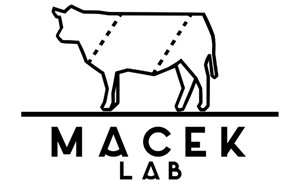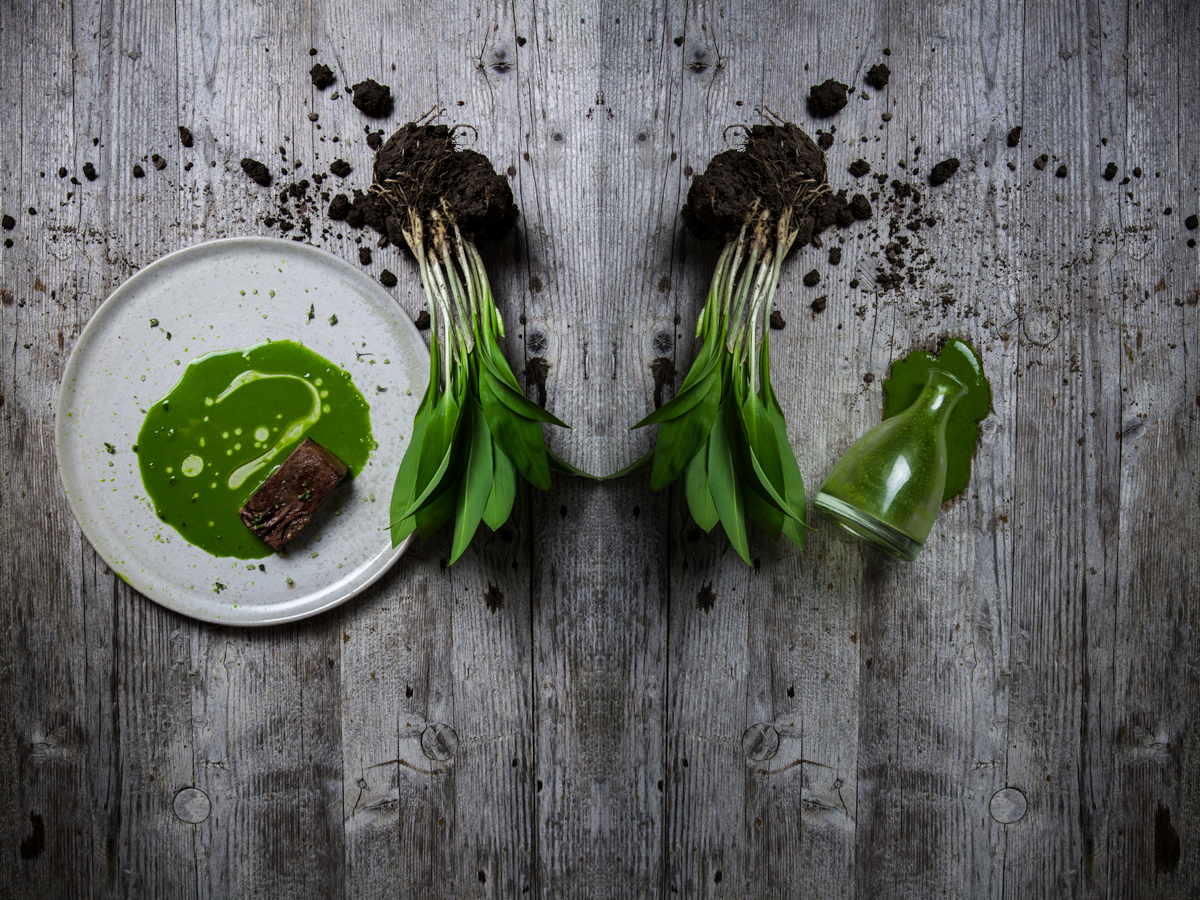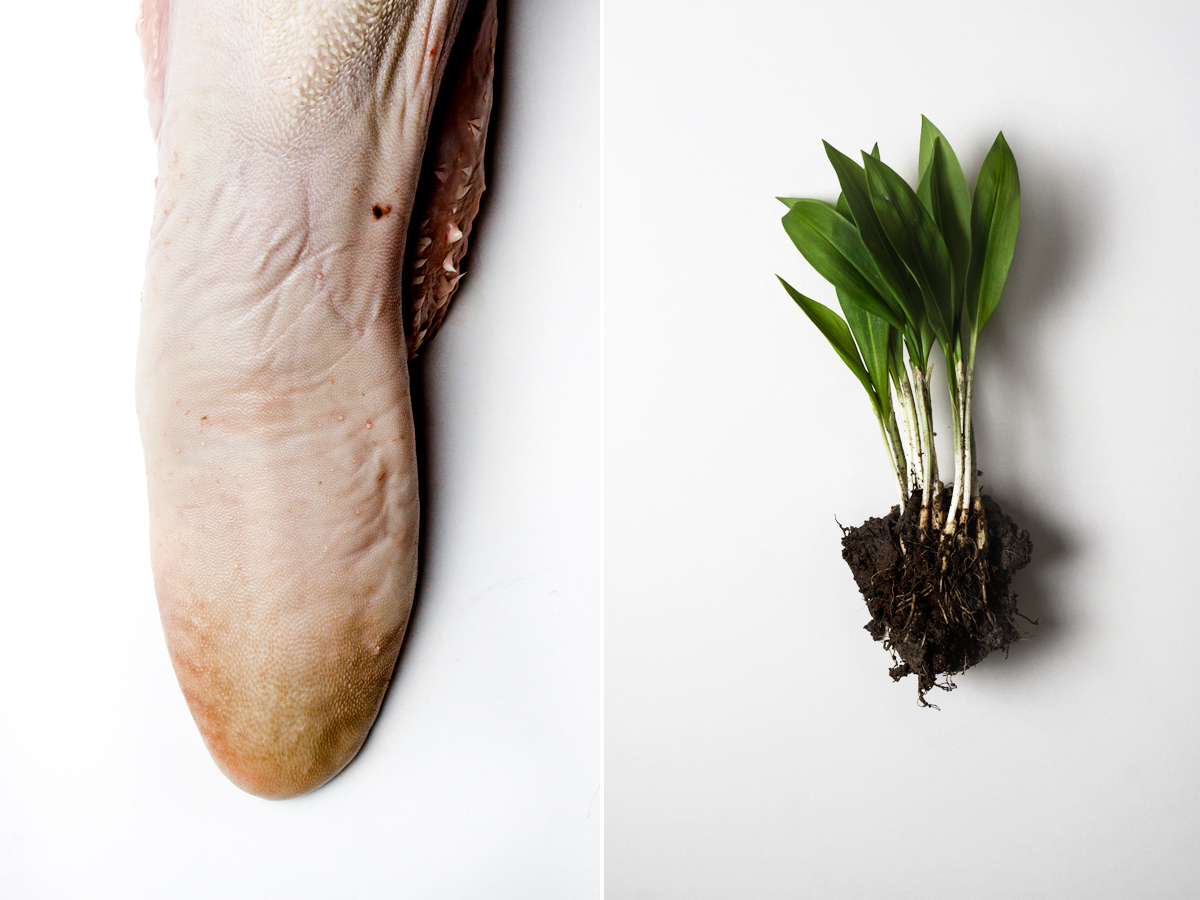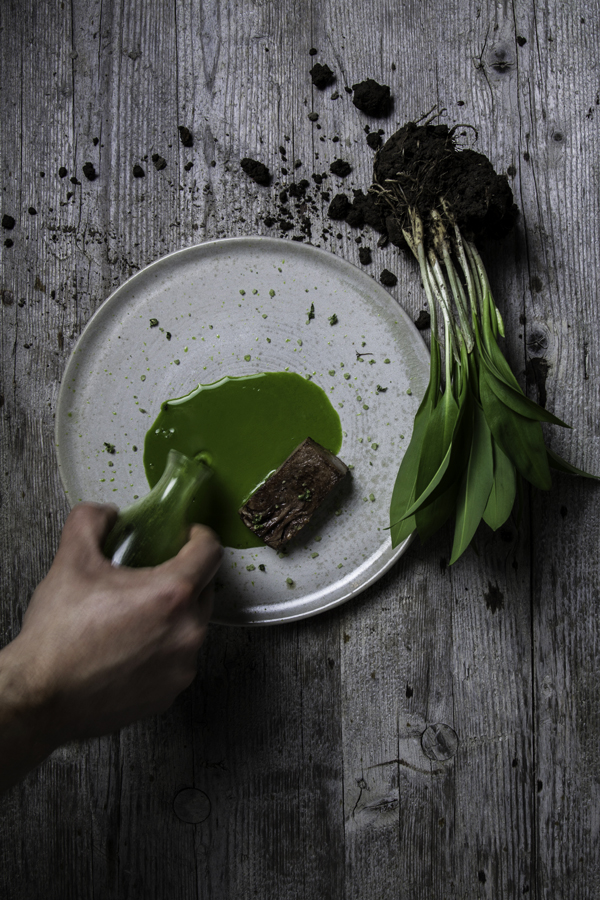I grew up in the southern Slovakia where the spring in the gardens and groves smells just like fine garlic aroma. Apparently the first thing the bears eat after waking up from hibernation, the wild garlic. For them, particularly has an ant parasitic meaning. If hungry bears don’t find a dead animal, they must descent to lower altitudes and there are fed on herbs, arrows, beetle larvae, eating everything edible and what they find. They also eat juicy wild garlic, which is a relative of chives, not garlic. Only its constituents are almost identical. Wild garlic is packed with vitamin C, B6, allicin and chlorophyll which is certainly an asset compared to the garlic. Since long time it belonged to the ingredients of the spring in the south of Slovakia, especially in rural areas.
I was happy because together wild garlic, some herbs woke up too and I was finally able to make herbal salt. I love to flavor simple meals with such salts. Bite of small crystals of salt causes on the tongue a pleasant wave of salinity and it topped by subtle herbal flavor. It is one of those pleasant crunching, unlike the badly washed salad. Such salt can vacuum and store in the freezer.
A tongue is a hard worker that is why it’s certainly a wonderful treat. For some, it’s a piece of a meat that belongs more to a beer in the pubs. Someone even dares to mention it in front his wife because he could end up just like one. Others have only a problem of the idea of eating it. I do not judge anyone for that kind of block; I still do not know to overcome the disgust of the fermented cucumbers.
Like most of the viscera also the tongue became a taboo and was removed from the meals list while 100 years ago was considered a delicacy and except cooking, it was grilled or baked in butter with sugar-coating or breadcrumbs. A large part of delicious pieces end today in kafilerie. I decided to talk about them and try to get them from the farmers. Often these are the prejudices into which we fell and so we create a huge amount of waste which was not one before. Stylish quick means to live properly to the ecosystem.
Beef tongue with butter emulsion of wild garlic and thyme salt
Beef tongue
Vegetable broth
Handful of fresh wild garlic
Butter
Grape seed oil
Coarse salt
Handful fresh thyme
Tongue
Nicely washed beef tongue put into a pot and pour over a hot vegetable broth (celery, carrots, parsley, onion, whole black pepper, bay leaf). Cook slowly on the lowest temperature and maintain between 85-90 ° C. Leave him to cook just like this four hours below the boiling point until completely soft. The meat will become soft as marshmallows. Peel the tongue, cut the growths and cool.
Salt
While a tongue cools, we take thyme leaves and put them in a mortar. If you washed it before, you need to very carefully dry it; excess moisture is a problem for the salt. In a mortar, we crush the leaves, as if we were preparing a pesto. Add the big grain salt and stir slowly until all the crystals are green color. Put the salt on a small tray and put it in the oven heated to around 100 ° C, leave until completely dry. I usually put the rest of the thyme stalks on top and according to them; I see how fast it dries. It takes about 10 minutes. In summer you can put the salt on the direct sunlight.
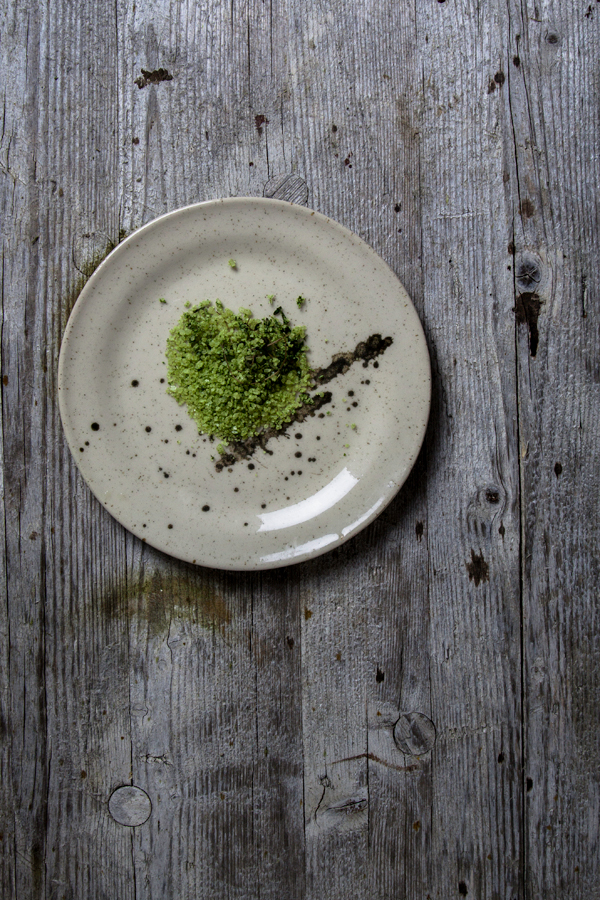
Emulsion
Torn garlic leaves into small pieces and put in a narrow container. Pour over with the hot water. We want cover only the leaves, not more. Add two tablespoons of oil and mixing up for two minutes. It creates an oil-in-water mixture. It also means that on the surface there will be no oil stains. By mixing the oil drops into the water the whole mixture will soften slightly and concentrate. Pass the emulsion through a fine mesh sieve.
On a frying pan, melt the butter and fry the tongue. Be careful not to burn the butter. When serving, add to the garlic emulsion a little grape seed oil or quality oil from nuts or seeds.
